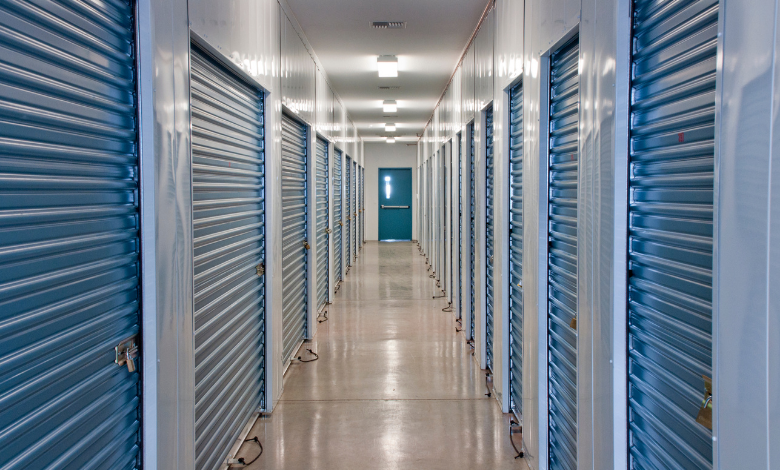Storage Units: A Detailed Guide

Storage Units: A Detailed Guide is a guide that will teach you everything about storage units. If you want to know more about Storage Units: A Detailed Guide, keep reading! This article provides information on renting a unit, what factors influence the cost of renting, and where you can find storage units in your area.
How is Rent of Storage Decided?
The price of a storage container is determined by how much and how long you keep things in it. Self-storage facilities usually require month-to-month contracts. Customers have the opportunity to save either temporarily or long-term using this approach. In our view, month-to-month storage containers are the most convenient alternative. Full-service storage facilities provide a variety of different contracts. Some demand a three-month minimum, while others offer month-to-month services. Weekly storage container rentals, accessible weekly and can be used as needed, are extremely useful for those in need of short-term storage. Unfortunately, not all storage facilities provide this service.
Many different factors influence the cost of renting a storage container. The most common one is the size of your unit, which will determine how much you pay each month for rent. Other important considerations include whether or not there’s insurance and if it has replacement costs. What kind of access to units do customers receive (i.e., drive-up only); and any convenience fees like late payment charges or bills paid on-site by employees rather than online via computer systems. These convenience fees may be worth paying because they save time and energy otherwise spent driving back and forth from self-storage facilities over such issues as making payments when dates fall during working hours while customers are busy. Here are a few advice renting a storage unit.
How to Rent Storage Unit?
Typically, you can keep a storage container for as long as you need. Whether you need short-term or long-term storage, you can locate it at one of many storage businesses. Some people use storage lockers as a secondary location for personal or business items. However, storage facilities will most likely impose a minimum rental period. The majority of these businesses provide month-to-month or weekly contracts. Some storage businesses may require a three-month minimum. Keep in mind that if you want to terminate your storage rental early, you must notify the firm by a specified date. If you don’t cancel, you’ll be charged for the following month whether or not you’re still using the service.
To get the best prices for storage units, you need to make it a point to shop around. Keep in mind that self-storage facilities typically require month-long contracts and three months of the minimum tenancy. In comparison, short-term rental businesses usually take between one week and up to six weeks’ worth of rent upfront before letting customers into their spaces.
Some people choose long-term over other types because they can receive discounts on insurance coverage while forgetting about monthly move-out expenses. Furthermore, full-service firms allow customers access 24 hours a day and have access codes so individuals can gain entry whenever is convenient without having to wait or bother someone at reception which might not always be available when necessary.
Where to Find Storage Units?
When it comes to reserving a storage container, each storage business follows its own set of procedures. In general, many storage facilities demand that renters present a government-issued form of identification when making reservations for storage space. To rent a storage container, first conduct research on the storage business you want to use and the location where you would like to store your items. Then, make a reservation by phone or in-person online or over the internet. Most storage facilities will allow you to reserve a storage space at least a month in advance. As soon as you finish signing your rental agreement, you’ll be given a date when you can begin moving your goods to storage. Depending on your contract, the storage facility may demand you a weekly or monthly fee.
Types of Storage Unit
Consider these two types of storage choices when determining what sort of storage you require:
Full-service storage: Customers of a full-service storage firm may use their services “valet-style.” The primary idea behind a full-service storage facility is to pick up your belongings and deliver them to the storage unit. Customers may even schedule a pick-up or return on their smartphone, as several full-service storage firms now allow. Hiring a full-service storage company will save the customer time by eliminating the hassles of transporting goods there. Your things may also be photographed and recorded at a full-service storage facility. This method allows you to look at a picture or check your online inventory list if you forget what’s in storage.
Self-storage: The most popular storage choice, self-storage, is without a doubt the most well-known. Storage facilities are available in various sizes to store items from home and larger objects, such as boats. Customers who use self-storage must transport their goods to the storage unit themselves. When it’s time to retrieve an item from storage, they reach over and take it. Customers should photograph their possessions since self-storage facilities do not track what’s inside a storage container. Self-storage facilities, on the other hand, are typically less expensive than full-service storage. As a result, they are more appealing to those on a budget.
Conclusion
So, if you find yourself in need of storage for your belongings or want to try making some extra money by leasing out your spare space, there are many great options available. Storage units come with their pros and cons, so it’s best to research before deciding which one is right for you. We hope this guide has helped provide a little more clarity on what exactly goes into renting a storage unit!




